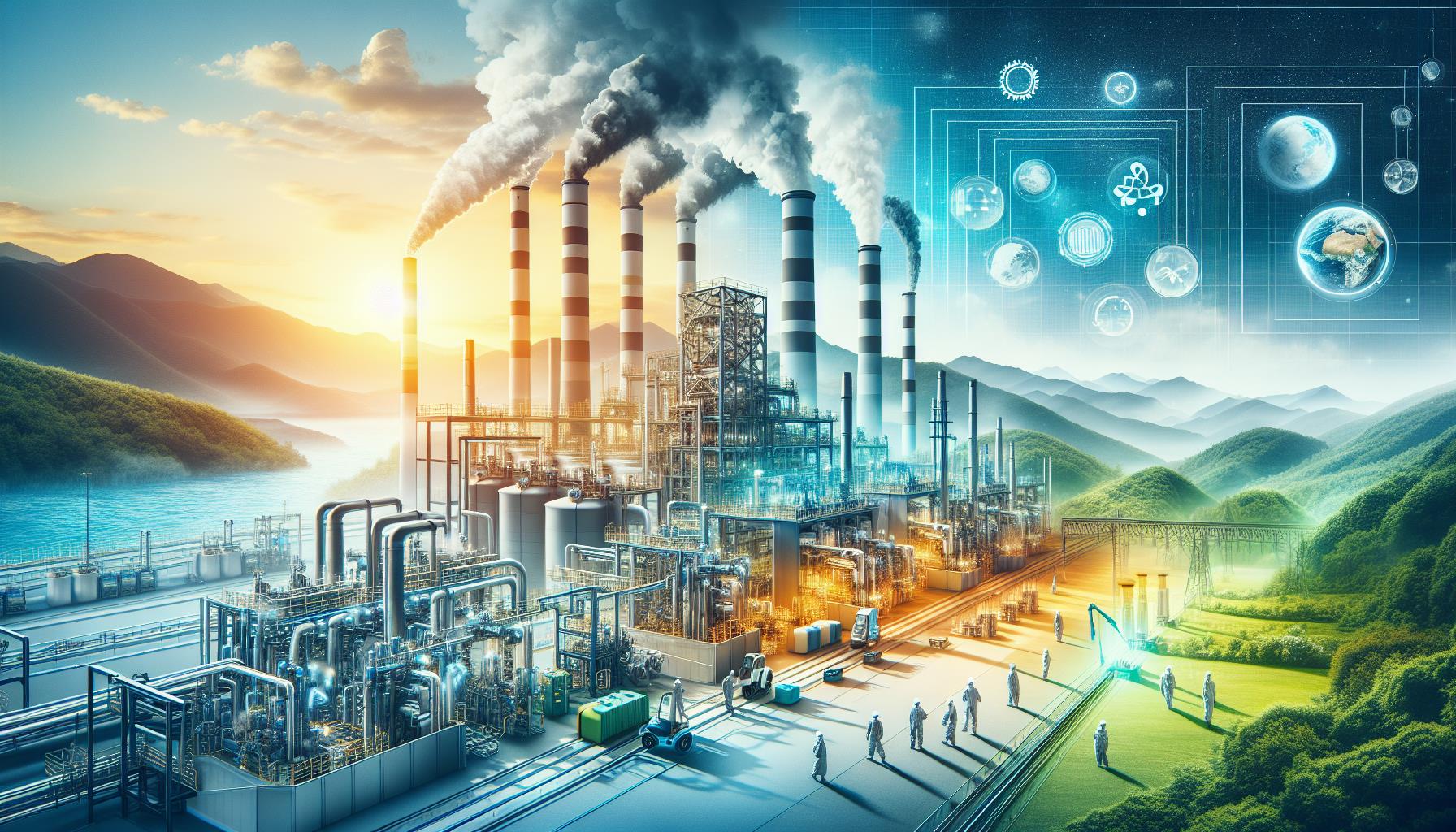Artificial Intelligence: A Beacon of Hope for Climate Action and Environmental Sustainability
As the world grapples with the escalating crisis of climate change, artificial intelligence (AI) is emerging as a vital ally in the quest for environmental sustainability. Industries and buildings are significant contributors to global greenhouse gas emissions, but AI technologies are paving the way towards a more sustainable future by optimizing energy consumption. Through the implementation of smart algorithms, AI systems can analyze vast amounts of data to identify patterns and inefficiencies in energy use. This enables the precise adjustment of heating, cooling, and lighting systems, thereby reducing energy waste and lowering carbon footprints.
Moreover, AI-driven solutions are revolutionizing the way businesses approach energy management. By forecasting energy demand and integrating renewable energy sources, these intelligent systems ensure that operations are both efficient and environmentally friendly. The result is a significant reduction in emissions, contributing to the global effort to mitigate climate change.
AI’s Critical Contribution to Environmental Monitoring and Conservation
The application of AI extends beyond energy optimization, playing a crucial role in environmental monitoring and conservation efforts. By harnessing the power of satellite imagery and sensor data, AI technologies offer unprecedented capabilities in tracking deforestation, monitoring wildlife populations, and predicting environmental changes. This real-time data analysis enables conservationists to take timely action, protecting ecosystems and biodiversity from further harm.
Furthermore, AI’s predictive analytics are instrumental in forecasting environmental phenomena, such as the spread of wildfires or the impact of climate change on specific habitats. These insights allow for more effective conservation strategies, ensuring that resources are allocated where they are most needed. The ability to predict and respond to environmental challenges is a game-changer in the fight against climate change.
Optimizing Renewable Energy Production with AI
The transition to renewable energy sources is essential for achieving a sustainable future, and AI is at the forefront of this transformation. By optimizing the operation of wind farms and solar panels, AI algorithms maximize energy production while minimizing costs. This not only enhances the efficiency of renewable energy sources but also makes them more competitive with traditional fossil fuels.
AI’s ability to predict weather patterns with high accuracy further enhances the reliability of renewable energy. By forecasting sunlight and wind conditions, energy producers can adjust their operations accordingly, ensuring a steady supply of clean energy. This stability is crucial for integrating renewable sources into the national grid, reducing our reliance on fossil fuels.
Revolutionizing Waste Management through AI
Waste management is another area where AI is making significant strides. Intelligent sorting systems powered by AI are capable of separating recyclables from waste with unprecedented precision. This not only increases the efficiency of recycling processes but also significantly reduces the amount of waste sent to landfills. By automating and optimizing waste management, AI contributes to a more sustainable and circular economy.
Moreover, AI technologies are being used to tackle the global plastic pollution crisis. Through the analysis of data collected from drones and satellites, AI systems can identify pollution hotspots and track the movement of plastic waste in oceans and rivers. This information is invaluable for cleanup operations and for developing strategies to prevent plastic pollution at its source.
Empowering Sustainable Agriculture with AI
Agriculture is a vital sector for global food security, but it also poses environmental challenges. AI is transforming agriculture into a more sustainable practice by optimizing resource use and minimizing environmental impacts. Precision farming techniques, enabled by AI, allow for the accurate application of water, fertilizers, and pesticides, reducing waste and preventing runoff into natural water sources.
AI-driven agricultural drones and sensors monitor crop health in real time, enabling farmers to make informed decisions that boost yields while preserving the environment. By promoting more efficient and sustainable farming practices, AI is helping to secure the world’s food supply without compromising the planet’s health.
The fight against climate change and the pursuit of environmental sustainability are among the greatest challenges of our time. Artificial intelligence offers powerful tools to address these issues, from optimizing energy use and conserving natural resources to protecting ecosystems and promoting sustainable agriculture. As we continue to harness the potential of AI, we move closer to a future where human progress and environmental stewardship go hand in hand.
Embracing AI in our collective effort to combat climate change not only demonstrates our commitment to innovation but also our dedication to preserving the planet for future generations. The journey towards a sustainable future is complex, but with AI as our ally, it is a challenge we can meet with confidence and optimism.
